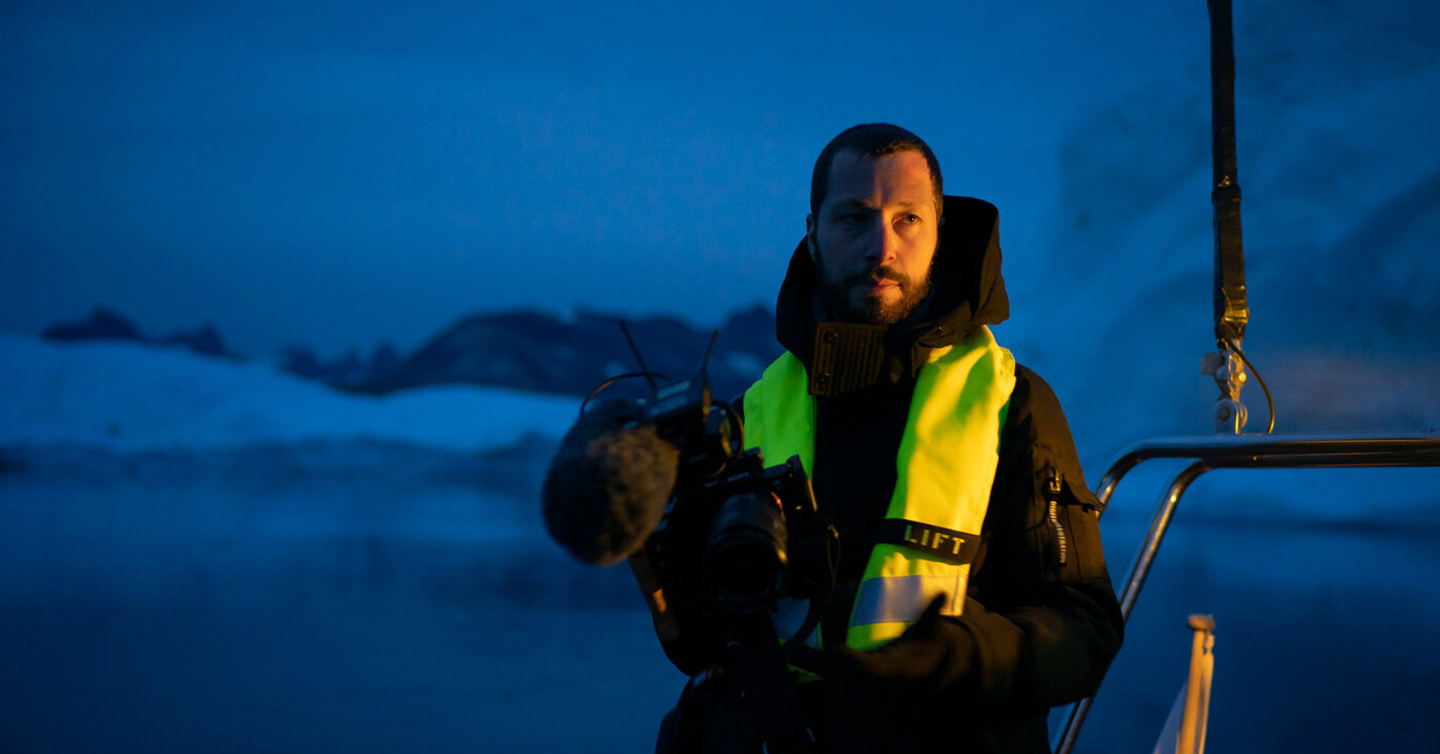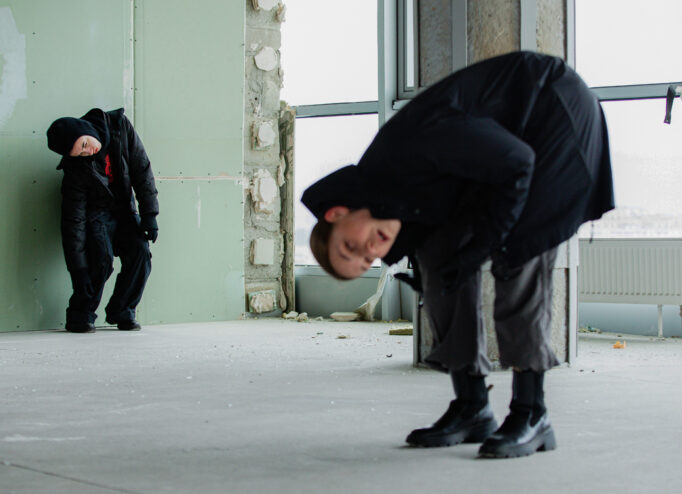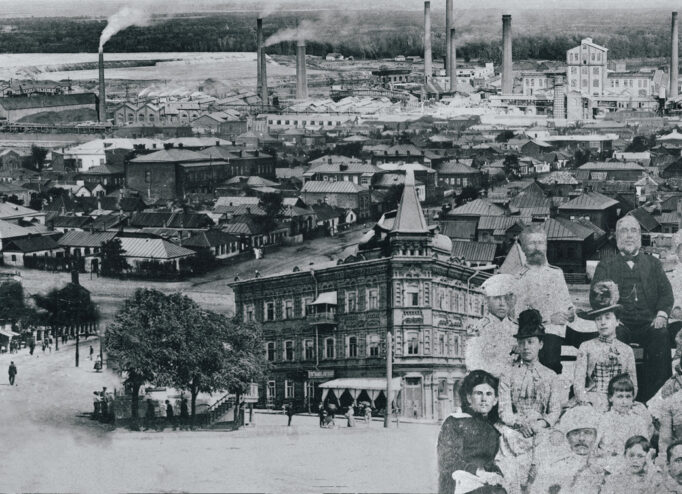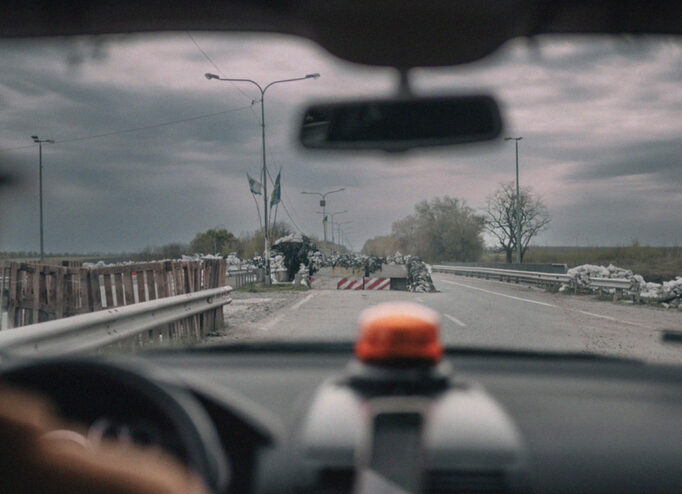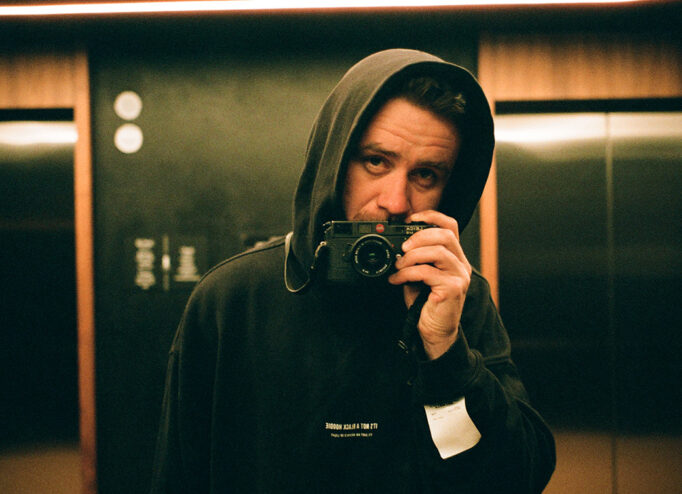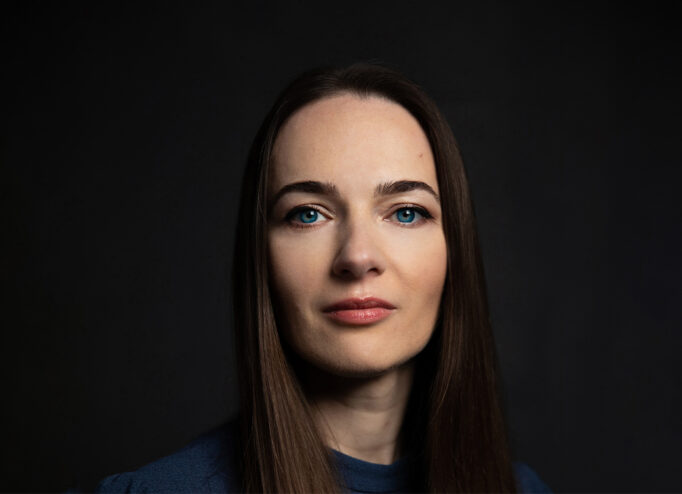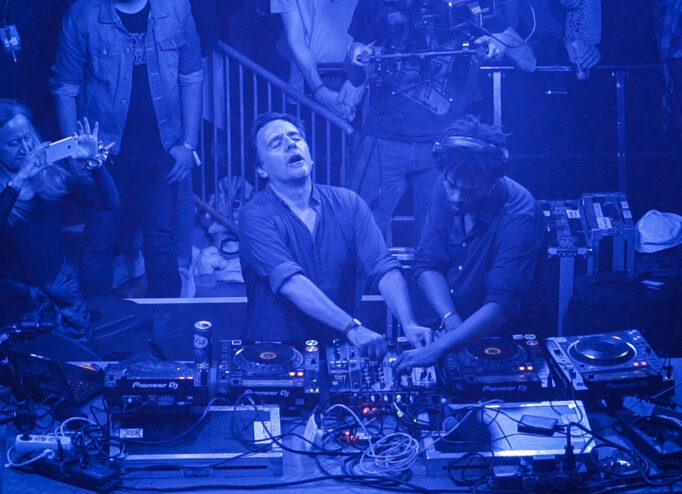On August 31, the documentary film ‘20 Days in Mariupol’ by journalist Mstyslav Chernov will be released in Ukraine. The film premiered at the Sundance Film Festival, where it won the Audience Award.
‘20 Days in Mariupol’ tells about 20 days of life in the city since the attack on it by russia on February 24, 2022. The film shows, among other things, the bombing of residential neighborhoods and a maternity hospital, people who lived and worked under the blockade, and how Chernov and his colleagues — photographer Yevhen Maloletka and journalist Vasylisa Stepanenko — managed to leave the city surrounded by russian occupiers.
In May 2023, Chernov, Stepanenko, Maloletka, along with American journalist Lori Hinnant, who supervised their work, received the Pulitzer Prize. And this is not the team’s only international award.
In an interview with DTF Magazine, Mstyslav Chernov tells us how the attitude towards journalists at the front has changed over nine years, whether he is afraid of death after the siege of Mariupol, why he included scenes with looting in the film and how he thinks Ukrainian tragedies should be told in live-action films
‘I would not expect any order from war’
— You have been filming in eastern Ukraine since the beginning of the russian invasion in 2014. And you shoot, in particular, the frontline and the fighting. How has the attitude towards a Ukrainian journalist in the trench changed over this time?
— This is a very interesting question, and it is difficult to answer because we have all changed. And at the same time, attitudes towards journalism have changed. It’s not just exclusively about the military, it’s about society in general. Many civilians and military men began to see journalists not as a biased part of the government, but as an independent force and sometimes the only force that can change something. Now there is a belief in journalism, which is important for how the world sees Ukraine and how Ukrainian society sees itself. This belief has only grown over the years, not least because of the war, unfortunately.
This is because everything happens very intensively during the war, identities and new relationships in society are being built. And so journalism has become part of how society self-regulates, because gradually there appeared a lot of journalists from the time of Maidan, bloggers or small media, who were much closer to people.
And in 2022, there was also the realization that the way the world sees or does not see Ukrainians, the Ukrainian army, Ukrainian society, and russian crimes in Ukraine depends on journalists. Western society trusts professional journalists much more than something shot on a cell phone.
Of course, there are shortcomings. Both international and Ukrainian journalists working in Ukraine face a lack of understanding of actions, that every shot counts. But it seems to me that we are moving in the right direction.
— On the one hand, journalists are not liked at the front, because they want to see and then show the viewer as much as possible. But the military are afraid that they will show too much. Or vice versa, they want to show, but the officers do not allow it. Does this duality hinder journalists at the front?
— Has there become more control? Yes, but it is more related to security because the information war has deepened. russian experts are finding targets by analyzing the videos and photos that have been viewed. Maybe this control has increased precisely because the monitoring by the enemy has increased. And that line is hard to cross, especially when there’s a heavy conflict, literally 24/7 fighting and therefore it’s hard to know what can be used.
There is no time to think, so it is sometimes easier for the military to say ‘no’. Unfortunately, this is a deepening of the information element in modern war, which was also the case in 2014. We are faced with a simple misunderstanding of what exactly needs to be shown.
War is chaos. I would not expect any order from war, especially when the war is in the active phase. I’ve been in five wars. All of them have been hard in some way, and they get harder as the years go by. It’s hard to film war because journalists become targets too.
Journalism is used in information warfare, and so in that sense, distrust of journalists is growing. But it’s just something we have to live with and work with somehow. I don’t know how it can be fixed. There has to be a dialog. There has to be an understanding that journalism is part of the battle that is going on right now.

— How do you recover from filming in hot spots?
— Journalists, military personnel and volunteers who are constantly working in the war zone — all social animals and socializing with friends and with whom the war has brought you together and brought you closer — help you survive psychologically.
When we talk about the effect of war on society, we are no longer talking about the post-traumatic syndrome of the individual. We are talking about collective post-traumatic syndrome, about collective trauma.
This means that therapy is also collective. In a sense, a healthy and united community that addresses problems together is what empowers all traumatized people. It is what heals on the front lines, at home or behind the front lines.
‘Mariupol is an example of how people are affected by the complete lack of information and how it destroys them’
— There are journalistic standards and internal ethical frameworks that guide every journalist when they publish a photo or video. What are you guided by when you choose what to show and what not to show? Do you have internal censorship?
— There are standards, but there are also editors. When I made the film ‘20 Days in Mariupol’, it was not a film made only by Mstyslav Chernov. Yes, I was the director and cameraman. Yes, I wrote the text, but it was also worked on by editors and archivists. It was edited by Michelle Mizner, who works with PBS Frontline. It’s a group of people who watch all the material together and help to find elements that you overlooked or left out. It’s about things that you removed because you have censorship.
All these moments are still present, and editors help you find the balance and the right tone, because internal control is not only about the material, but also about the tone with which you tell the story. And it’s important not just to tell the story, but to tell it without unnecessary moralizing and evaluations. Just to give the viewer the opportunity to see enough context and to be there with the people who experienced these tragedies and losses. And I think we succeeded in doing that.

I look at the audiences that come out of cinemas and I see that it’s like they’re coming out of Mariupol, they’re coming out with hope. That’s part of the tone you’re looking for, too. Frontline and the Associated Press are very rigid in their journalistic standards, so counterintuitively they made their jobs easier.
— At the Ukrainian premiere, you told about the harsh producers who didn’t want any interference in the material, particularly in the sound. Did you have any conflicts with them during the making of the film?
— We can call it a conflict or a heated discussion. These were heated discussions. They were practically on every element of the film. And that’s cool, because when you defend your opinion, you realize whether it’s right or wrong, and you look for arguments. What seems obvious becomes not so obvious anymore. This year of production had some tough moments.
Initially, we didn’t realize how much pain shown on the screen a viewer can take. Even if there isn’t actually a lot of blood in the film, but the emotional intensity is high, how much of it can the viewer take? That apprehension remained until the film was shown at Sundance and won the Audience Award there.
After that, we realized that we made the right choice when we decided not to sterilize the film. The audience watched the film even twice and came out with hope in their hearts after watching it.
Here it is important to communicate with the viewer and let the viewer understand where and what is happening. For the film ‘20 Days in Mariupol’ I used a raw feeling — a naturalistic feeling. Every frame of this film will be and in many cases has already been questioned by russian propaganda. This means that we could not allow any doubts about what was shot and how it was shot, whether we added anything to the material and the like. The editors fought for maximum naturalness and fidelity to the chronology, so we did not change the order and hardly interfered with the production.

There is a certain trend in modern documentary filmmaking — a kind of overproduction. The problem is that the movies are so well made that it feels like they are staged. That’s something we wanted to get away from as well. That was part of the discussion — how much backstage material we need when the camera falls down and does nothing.
— The film has quite a few episodes where you ask people how they are feeling. I especially remember the man who buries the bodies of the dead, because you ask him that question more than once. Why is it important for you to convey emotional content with words too?
— It’s not a question of how you feel in front of the camera, but how you feel. ‘How are you?’ — is a question we ask a person on the street, and it doesn’t mean we’re interested in what the person is thinking. ‘What do you feel?’ — is a completely different question. When you’re talking to a person under stress and you realize that you need to tell that to the world. You have to let the person know that you care.
There is such a bad tendency in journalism when journalists just come, film what happened, say something on camera and that’s it. And no one is interested in a person’s inner state. I think this is extremely important. You have to let the person know that you care, that you came not just to film, but to talk.
And the more tragedies happened, the more the city was destroyed, the more urgent this issue became, because people were completely cut off from the world and even from the understanding that someone somewhere was listening or would hear not just about what was happening, but about how they felt .
This man answers with all his heart, and he feels a little better because he shared it with someone. He knows he will be heard. We need to ask about people’s feelings more than we do in journalism.
— I agree with you. It’s all because you can’t be a ‘fly on the wall’ in this film.
— If I were European, this would not be my story. It would not be the story of my home, my neighbors, my family, my society. I might not have asked the characters those questions. And maybe I wouldn’t have even used my voice in this film at all. But together with the viewer, I’m trying to understand what I feel, what these people who are experiencing all of this together with me are feeling. So no, ‘fly on the wall’ is not an option.
— There is an episode with looting in the film, which is quite emotional, because they rob a store in front of the owner. Did you have any doubts about including this episode in the film? It seems to me that international audiences might react negatively to people in occupation.
— I remember having an interview with a Japanese journalist during the US premiere about a month ago. He just kept repeating the same question: ‘But why did you put this in the film? It shows Ukrainians not from a good side, but from a bad side’. And actually the answer is very simple.
We promised ourselves to show all psychological reactions of people both to the camera and to events. Even if these reactions are different, people have the right to react and say what they want.
One of the main themes of the film is how not only the military but also the information blockade affects people, and that information blockade is part of russian military tactics.
And Mariupol is an example of how people are affected by the complete lack of information and how it destroys them.
Lack of information, opportunities and understanding of what is happening to your country, your city and your loved ones destroys society. This, by the way, helps us to understand the key role of journalism in modern society, which we probably underestimate.
This chaos and what happened to people and how they started to panic, which caused them to start looting, — this is an illustration of the effect of the information blockade, because panicked people don’t fight back.
Now we already know that the russians had special agents whose task was to sow chaos in society. They would go to basements and shelters and say: ‘We need to go there, there’s a store that the looters have opened’. That is, they were reinforcing this chaos with agents.
When a city is in a state of chaos, it’s much harder for the military and the police to work, they’re busy doing very different things. Instead of being in positions, the military is trying to protect people. That’s part of the attack, and that’s why it needed to be shown.
‘The fear of death is one of the main drives in my life’
— Today, there is an active discussion about the ethics of the penetration of live-action films into the traumatic experiences of Irpin, Bucha and Borodyanka. When will the time come to reinterpret these stories in this form and will it ever come?
— Live-action film and documentary are two different mediums. And there are themes, events and thoughts that can and should be told by the documentary medium in short or long form. There are themes, thoughts and feelings that can only be expressed and told by literature, because literature and non-documentary literature, that is, fiction, tell much of what we now know about World War I and World War II.
You can’t say that live-action films or fiction are the wrong genres or the wrong mediums to tell about real events. It has a different focus — a focus on what the documentary simply cannot tell.
Because there is an information war, of course, there is a danger that it will do harm rather than good. We need to open up to the audience.
I like the way it was done, for example, in Craig Mazin’s ‘Chernobyl’ series. There are still living witnesses of what happened in Chornobyl, there are people who could say: ‘No, it wasn’t like that. This person didn’t die, and this person died. And this event didn’t happen at all’. So the authors of the series created a podcast and a series of articles where they openly told viewers that this is an artistic interpretation of the event, which does not claim to be absolutely documentary accurate and what they changed in the series was changed for artistic effect. They added point by point what they changed.
This is a dialogue with the audience, and this is good practice, so we should make documentaries, we should write fiction, because we are appealing to an audience that might not be interested in this topic at all.
‘20 Days in Mariupol’ was watched by people who do not watch the news. That is, the audience and the number of people who know something about the war in Ukraine, about the russian invasion and about russia’s crimes in Ukraine has increased.
Fiction and films will also contribute to this, but it has to be done in the right way. You have to communicate openly with the viewer and explain what the artistic element is.
— How relevant is your book called ‘The Dreamtime: A Novel’? Would you like to change anything in it, for example, the optics?
Not just the optics have changed, but the book has changed. Its English version is different from the Ukrainian one. If I were to republish it, I would change it. It is an endless process. And it is possible precisely because it is fiction, i.e. transformation is a normal process for a fiction text. But we have all, as I said at the beginning of our conversation, changed over these nine years.
I don’t recognize myself or my friends. The ones who are alive. And, of course, what we do is changing too.
I know for sure that I have become, for example, more radical in some ways. Whereas a few years ago I thought it was okay to talk about certain things by just hinting at them, now I think it would be okay to talk directly.

— How did your attitude towards death change after filming during the blockade?
— I was afraid of death, and I still am. The fear of death is one of the main drives in my life. It hasn’t changed. That fear is always with me. It just sounds counter-intuitive, like why am I afraid of death but putting myself in danger. It’s a kind of challenge. You put yourself in a condition where you just have to fight your fear
We’ve all accepted our deaths in some way. However, it is one thing to accept your own death, but you cannot accept the death of your loved ones or your children.
‘20 Days in Mariupol’ is scheduled to be released in Ukraine on August 31.
